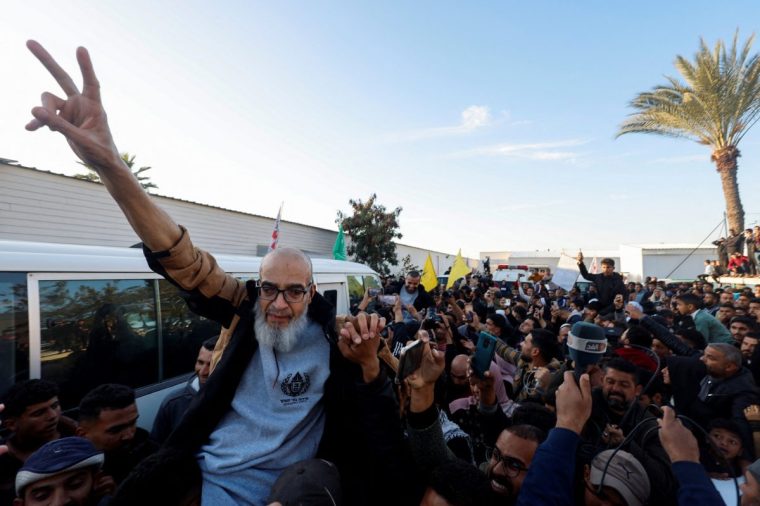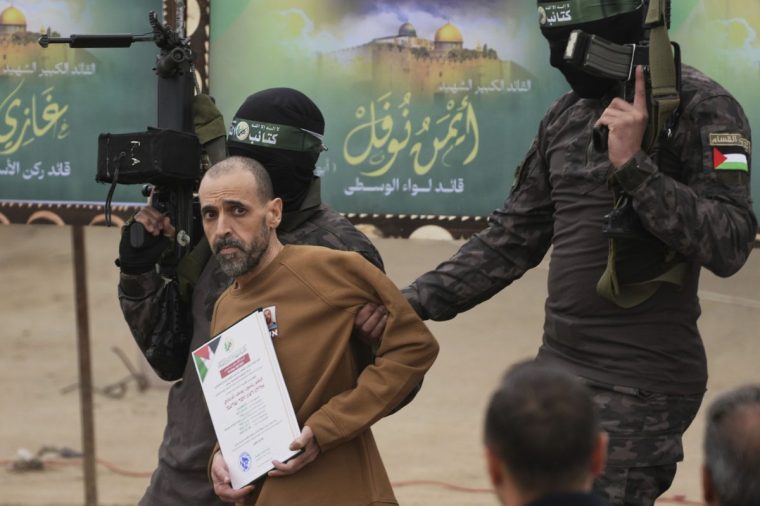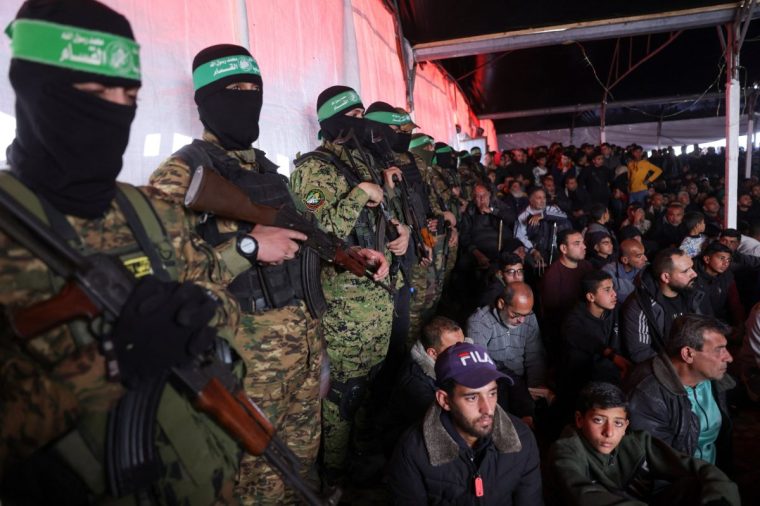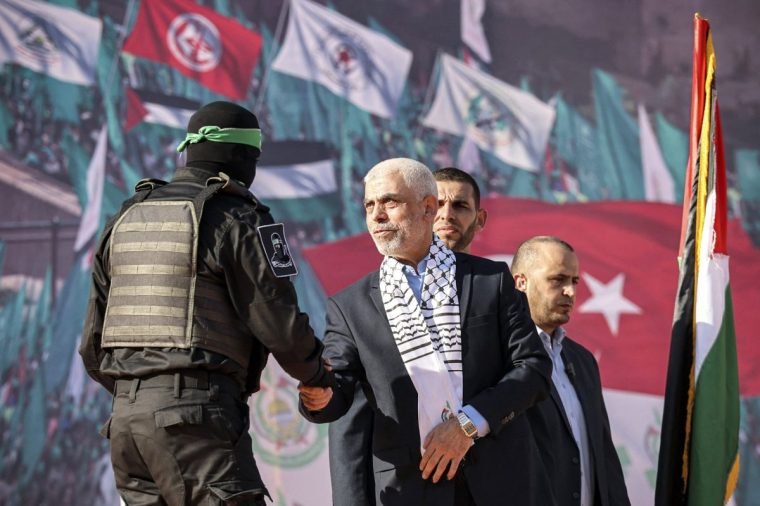Major sticking points between Israel and Hamas could easily derail negotiations this week, experts tell The i Paper
Israel and Hamas are set to begin indirect talks in Egypt this week as part of efforts to end the war in Gaza, as both sides tentatively agreed to key parts of Donald Trump’s peace plan.
However, there are still chasms between the two sides, which threaten to derail the Egypt-brokered negotiations, experts told The i Paper.
These sticking points include the release of Palestinian prisoners, as well as the disarmament of Hamas and the militant group’s political future.
Despite all this, Trump for the first time ordered Israel to stop bombing Gaza this week, saying he was “very close to achieving” peace in the Middle East.
Palestinian prisoners
Hamas has indicated it is ready to release the hostages it seized during the 7 October attacks, around 20 of whom are still believed to be alive.
Israel has also provisionally agreed to the release of 2,000 Palestinian prisoners held in Israeli jails, including 250 serving long-term sentences.
Ahron Bregman, an academic at King’s College London who served for six years in the Israeli army, said that this would be the main sticking point in negotiations, as Israel would want to avoid these individuals reconstituting Hamas on their release.
“The debate will be over who is on the list of 250. Israel only has around 280 of these prisoners, so there is not a lot of room for manoeuvre,” he told The i Paper.
For instance, Bregman said Israel will not want to release Marwan Barghout, who is serving five life sentences. “He’s a real danger for Israel; he could be a charismatic and effective leader if he is released,” Bregman said. “From the Israeli point of view, he is likely to bring all of the factions together, including Hamas.”

Yossi Mekelberg, a senior consulting fellow at Chatham House, said the release of prisoners deemed to be serious offenders who may pose a future threat to Israel would open up Prime Minister Benjamin Netanyahu to a lot of criticism.
However, he said that this was likely to be a surmountable problem because of the pressure Israel is under to end the war, both at home and abroad.
“Trump seems to mean it when he says he wants to bring about peace, and he has the power to do so,” Mekelberg said. “There is pressure not just from the US. The conditions in Gaza are hell. There is fatigue in Israel; the Israeli Defence Forces (IDF) wants this to end. It is almost impossible for Netanyahu to say no.”
Israeli hostages
In a statement, Hamas agreed “to release all Israeli prisoners, both living and dead”, according to the exchange formula contained in Trump’s proposal – providing certain conditions are met. However, there is likely to be disagreement over the process and timeline for doing so.
Bregman said that Hamas would likely insist it needs time to release the hostages, especially locating bodies which may be trapped under rubble.
“Israel has killed many of the people who knew where the bodies are,” he said. “I hope I’m wrong, but there may be some bodies which are never found.”

Rob Geist Pinfold, a lecturer in international security at King’s College London, said that Netanyahu was unlikely to agree to a deal in which some hostages were not released.
He said the logistical difficulties meant the exchange of prisoners and hostages was likely to take place in stages, with delays at each step, undermining trust in the process.
Mekelberg, for his part, also questioned how Hamas plans to get hostages to a safe place for release amid continued Israeli bombing and devastation from two years of conflict.
Disarming Hamas
The analysts all said they believed the first stage of the plan – the release of hostages and prisoners – would take place in some form, but that the longer-term agreements on Gaza’s future were far more contentious.
Under Trump’s plan, Hamas would be effectively disarmed and Gaza demilitarised, with all military, terror, and offensive infrastructure, including tunnels and weapon production facilities, destroyed.
Bregman said this would be a key obstacle for the longer-term elements of the plan, with Hamas likely to want to keep some weaponry.
“Israel has already destroyed Hamas’s heavy guns, rockets, workshops, and controls the Philadelphi route [a buffer zone on the border of the Gaza Strip and Egypt], so it does not pose a real threat to Israel.
“But Hamas will likely insist on keeping light weapons, saying it has the right to protect itself,” he said. “With these weapons and the prisoners soon to be released, they will be able to create the next Hamas leadership. If they are able to keep weapons, they can effectively stay in power.”

Pinfold agreed that disarmament would be the “key sticking point” in negotiation.
“You might have Hamas replaced as the governance in Gaza, but if they’re still able to keep up an insurgency in the Gaza Strip, when Israel has withdrawn from the territory, this is a nightmare scenario for Israel. They’ll want to go back in to confront Hamas,” he said.
“For them, having any kind of Hamas presence in Gaza means it’s impossible for Israel to say it’s won the war”, Pinfold said, but there are “huge impediments” to Hamas agreeing to disarmament as it would leave them without territory and in political exile.
Hamas’s political future
In Trump’s blueprint, Hamas would not be part of the government of Palestine, something Israel has repeatedly insisted on.
Instead, an interim government of apolitical Palestinians and international experts would manage Gaza, with oversight from a “Board of Peace” including Trump and former Prime Minister Tony Blair.
Hamas has said it “renews its agreement to hand over the administration of the Gaza Strip to a Palestinian body of independents (technocrats), based on Palestinian national consensus and Arab and Islamic support”. But crucially, it has not agreed to a vision of Palestine without any of its influence – and seems unlikely to do so.

“Hamas hasn’t said what its relationship to this technocratic government will be,” Pinfold told The i Paper.
He suggested that Hamas would try to copy the Hezbollah model in Lebanon, “where for many years you had a government supposedly made up of unaffiliated figures who everyone knew were either in the Hezbollah camp or anti-Hezbollah camp”.
The international security expert also said mediators, including the US, were likely to be happy to “boot the long-term issues into the long grass”, prioritising a ceasefire.
Mekelberg said that Hamas would want a continued role in Palestinian politics and would not want Israel to control decisions over governance of Gaza, including how long the interim government could stay and how international forces enter the Strip.
Palestinian statehood
Netanyahu has said that Israel will “forcibly resist” efforts to recognise a Palestinian state, despite growing pressure on the topic.
Last month, the UK joined France and other allied nations in announcing it would recognise a Palestinian state, saying Palestinians had an “inalienable right to self-determination”.
Bregman said the formal establishment of a Palestinian state had become significantly more likely since 7 October and the ensuing attacks, with neighbouring countries now demanding it and Western countries that have committed to recognition unlikely to backtrack.
This would make it significantly harder for Israelis to continue to annex or occupy territory in the West Bank, which the International Court of Justice ruled illegal.
But Pinfold said Palestinian statehood “was not realistic any time soon” without a credible Palestinian government ready for recognition, and this was likely to be another thing that is kicked down the line by negotiators, potentially to rear its ugly head in the near future.
